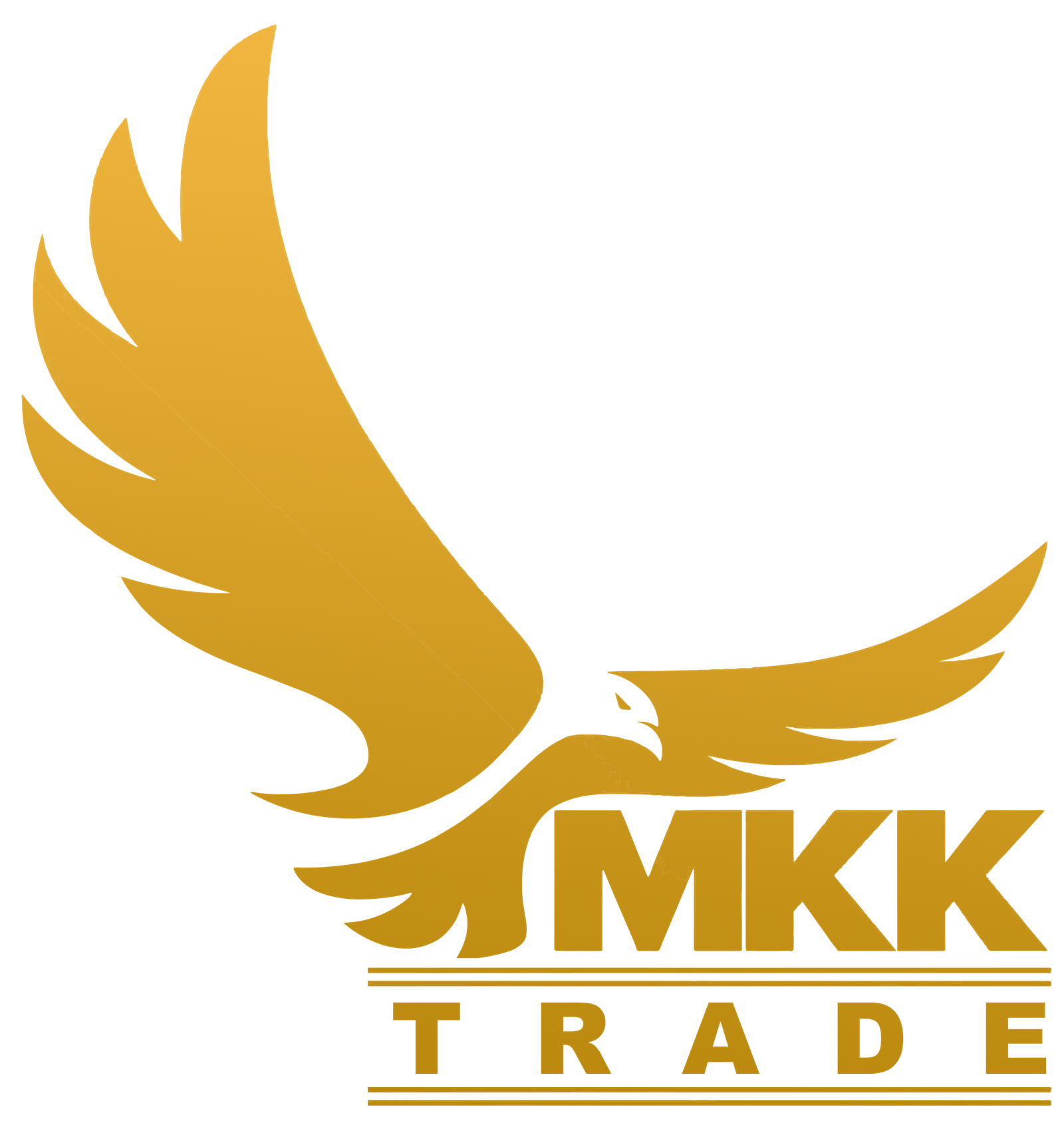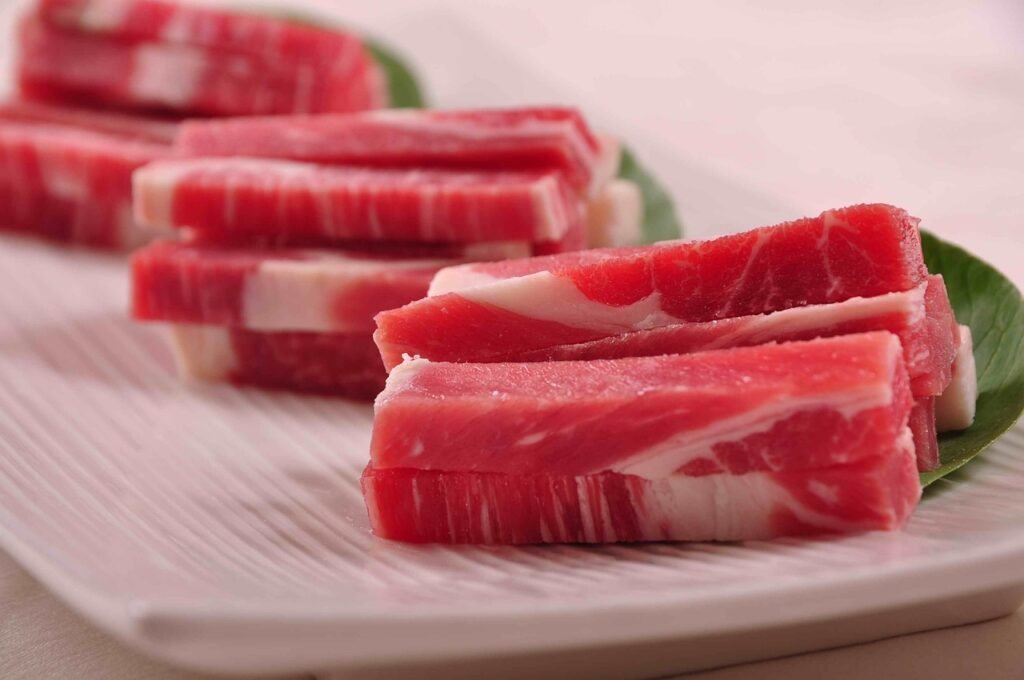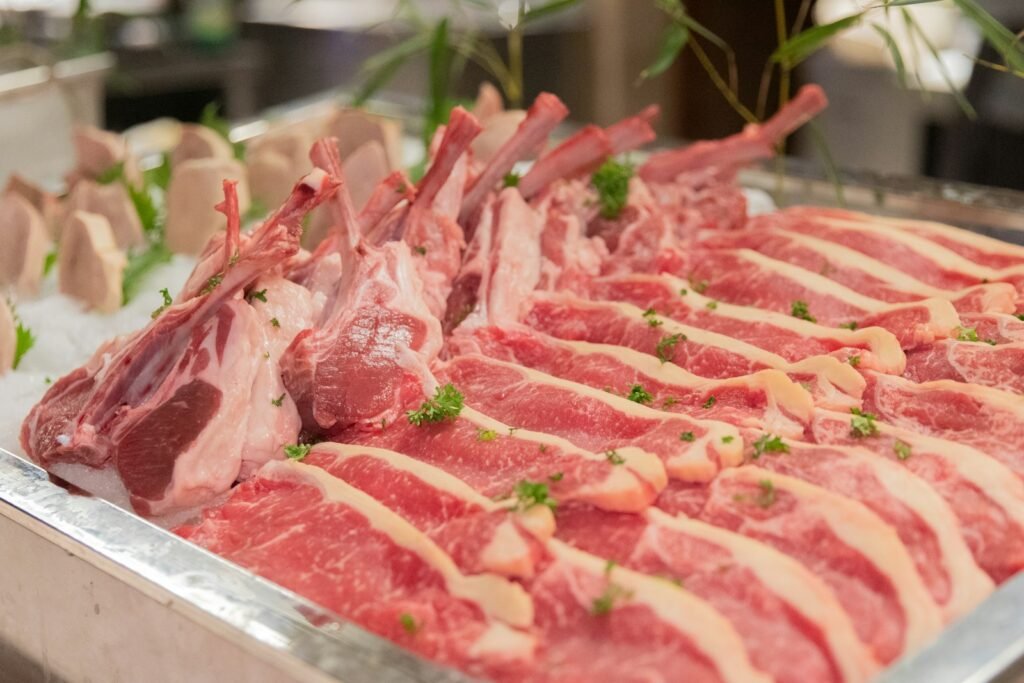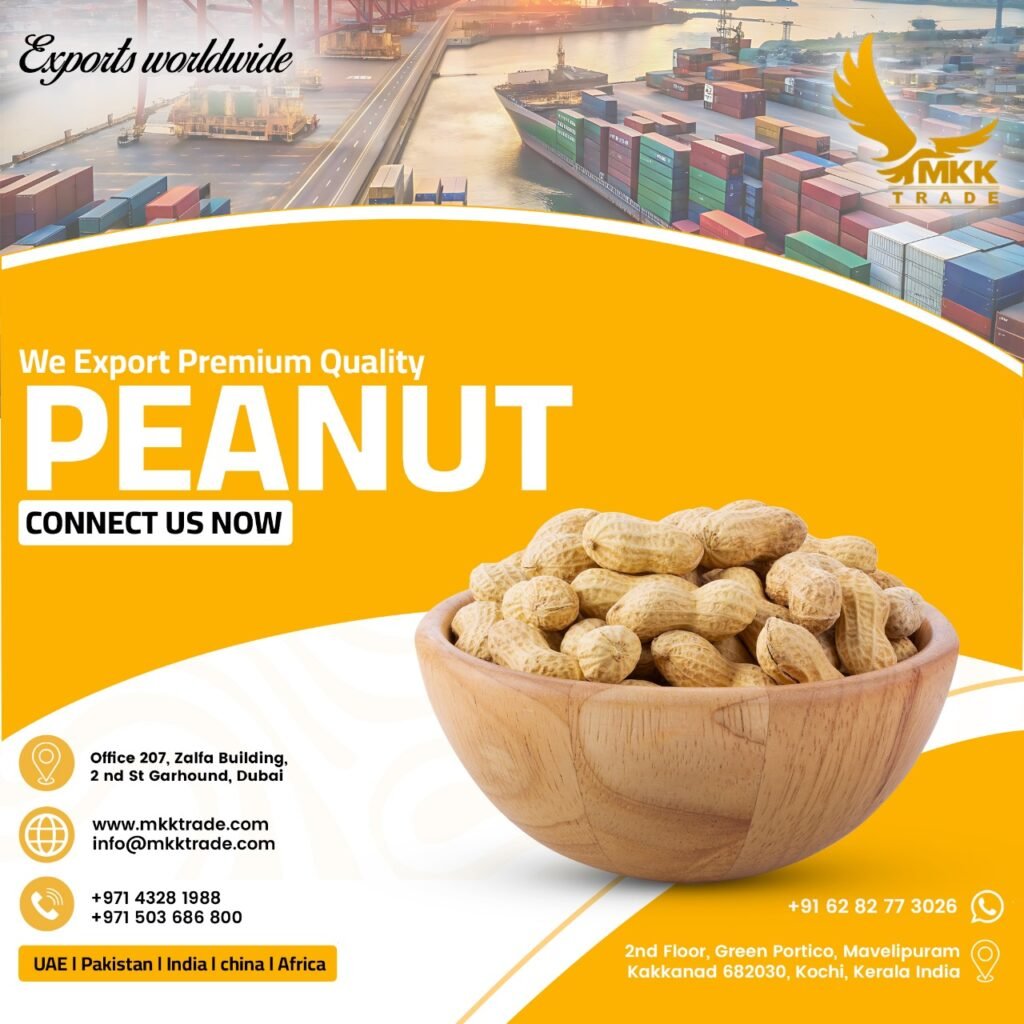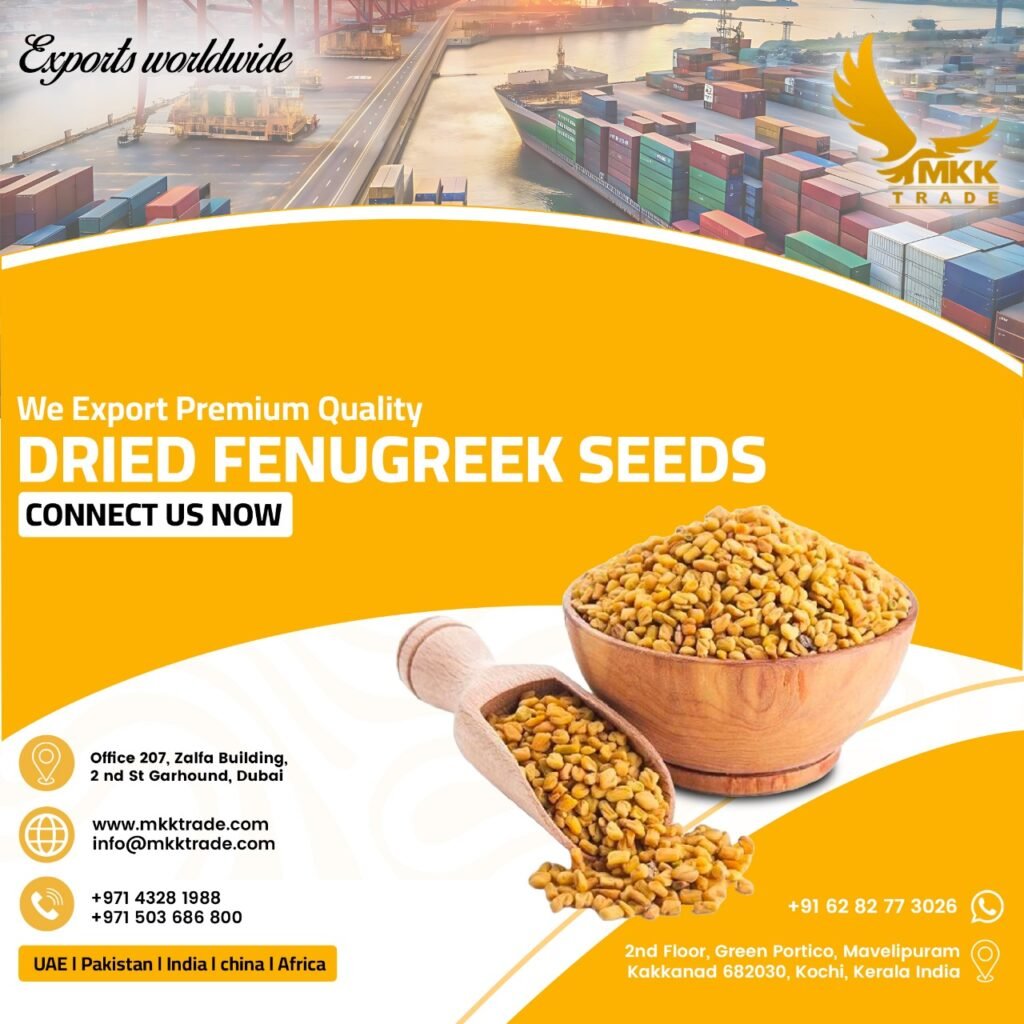Office #207-2nd Floor-ZALFA BUILDING-NEAR Jumeirah Creekside Hotel-Garhoud -Dubai UAE
Key Importance of MKK Trade in Mutton Exporting
MKK Trade is a prominent name in the mutton exporting industry, with its operations reflecting the vital role it plays in connecting producers and global consumers. The company is integral not only to the supply of high-quality meat products but also to the broader dynamics of economic growth, sustainability, and international trade. Below is a detailed exploration of the key importance of MKK Trade in mutton exporting:
1. Delivering Premium Quality Mutton
- Strict Quality Assurance: MKK Trade ensures that every stage of its supply chain—from sourcing to processing and packaging—meets the highest international standards.
- Freshness and Hygiene: The company uses advanced processing facilities and temperature-controlled logistics to maintain the freshness and hygiene of the mutton.
- Tailored Solutions: MKK Trade offers a variety of cuts and packaging options to cater to the specific requirements of diverse global markets.
2. Supporting the Livestock Economy
- Empowering Farmers: MKK Trade sources livestock from local farmers, creating a reliable market and enhancing rural incomes.
- Boosting Livelihoods: The company’s operations generate employment opportunities across the supply chain, including farming, processing, logistics, and distribution.
- Value Addition: Through processing and export activities, MKK Trade adds significant value to the raw product, contributing to the economic growth of the livestock sector.
3. Meeting Global Demand for Halal-Certified Meat
- Cultural Sensitivity: MKK Trade specializes in halal-certified mutton, ensuring compliance with the dietary and cultural practices of Muslim-majority importing nations.
- Expanding Global Reach: By focusing on halal certification, the company has established a strong presence in key markets like the Middle East, Southeast Asia, and Africa.
- Diverse Clientele: The company serves wholesalers, retailers, and restaurants, ensuring a broad distribution network.
4. Contribution to India’s Export Economy
- Foreign Exchange Earnings: As a significant exporter, MKK Trade contributes to India’s foreign exchange reserves, strengthening the country’s economic position.
- Enhancing India’s Global Reputation: Through its commitment to quality and reliability, the company helps build India’s brand as a leading supplier of premium meat products.
- Market Diversification: MKK Trade’s ability to cater to diverse markets mitigates risks associated with dependence on any single region.
5. Commitment to Sustainability and Ethical Practices
- Responsible Sourcing: The company works with suppliers who adhere to ethical and sustainable livestock farming practices.
- Minimizing Waste: MKK Trade utilizes by-products such as hides and offal for other industries, maximizing resource efficiency.
- Eco-Friendly Operations: By investing in energy-efficient processes and technologies, MKK Trade aligns with global efforts to reduce the environmental impact of meat production.
6. Ensuring Food Security in Importing Nations
- Bridging Supply Gaps: MKK Trade exports mutton to regions with limited livestock resources, contributing to global food security.
- Reliable Supply Chain: The company’s robust logistics ensure timely delivery of meat, meeting the growing demand in international markets.
- Consistent Quality: By maintaining a reliable standard of mutton, MKK Trade supports the stability of food supplies in importing nations.
7. Leveraging Advanced Technology
- Modern Processing Facilities: The company uses state-of-the-art equipment to ensure efficient and hygienic meat processing.
- Temperature-Controlled Logistics: Advanced cold storage and transport systems maintain the quality of mutton during shipping.
- Digital Traceability: MKK Trade uses tracking systems to ensure transparency and accountability throughout the supply chain.
8. Catering to Diverse Market Needs
- Customized Offerings: From whole carcasses to specific cuts like leg, shoulder, and ribs, MKK Trade meets the varied preferences of global clients.
- Adaptable Packaging: The company provides customized packaging solutions to align with the storage and labeling requirements of different markets.
- Market Expertise: MKK Trade’s deep understanding of international market dynamics helps it anticipate and meet evolving consumer demands.
9. Promoting Ethical Standards in Meat Exporting
- Animal Welfare: MKK Trade ensures humane treatment of animals in its sourcing practices.
- Transparency: The company maintains open communication with suppliers and clients, building trust and credibility.
- Global Standards Compliance: Adhering to international regulations such as HACCP and ISO, MKK Trade exemplifies ethical and high-standard business practices.
10. Strategic Importance in International Trade
- Strengthening Bilateral Relationships: By meeting the meat demands of importing countries, MKK Trade fosters strong trade ties and collaboration.
- Supply Chain Leadership: The company plays a pivotal role in connecting Indian livestock producers with global markets.
- Setting Industry Benchmarks: MKK Trade’s focus on quality, sustainability, and innovation sets standards for other players in the mutton export industry.
MKK Trade’s contributions to the mutton exporting sector go beyond economic benefits, encompassing cultural sensitivity, sustainability, and global food security. By consistently delivering premium-quality products and adhering to ethical practices, the company has become a cornerstone of India’s meat export industry. Its role in fostering rural livelihoods, strengthening international trade, and promoting eco-friendly operations underscores its importance as a leader in mutton exporting.
